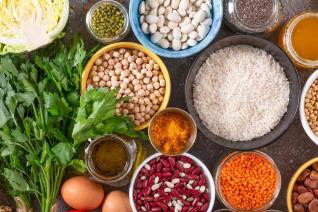
Quenching Your Thirst and Your Wellbeing: A Guide to Healthy Drinks
Which drink is good for health. We all know the importance of staying hydrated. But when it comes to what goes into our glass, besides water, the options can be overwhelming. Sugary sodas and artificially flavored drinks might be tempting, but they offer little to no nutritional value. This article explores a variety of healthy beverages that can quench your thirst and contribute to your overall well-being.
The Undisputed Champion: Water
Water is, without a doubt, the single most crucial drink for human health. It makes up around 60% of our body weight and plays a vital role in nearly every bodily function. From regulating body temperature to lubricating joints and transporting nutrients, water is essential for survival. Dehydration, even mild, can lead to fatigue, headaches, and difficulty concentrating.
So, how much water do you need? The precise quantity varies according to age, degree of activity, and climate. However, a good rule of thumb is to drink eight glasses (around two liters) of water daily. Here are some tips to increase your water intake:
- Keep a reusable water bottle with you and fill it up during the day.
Use a water tracking app or set phone reminders.
- Add slices of lemon, cucumber, or other fruits to your water for a touch of flavor.
- When dining out, go for water instead of sugary drinks.
Tea: A Treasure Trove of Antioxidants
Tea, enjoyed by cultures worldwide for centuries, offers a delightful and healthy beverage option. Packed with antioxidants, tea helps protect your cells from damage and may reduce the risk of chronic diseases like heart disease and cancer.
- Green Tea: This popular type of tea is brimming with antioxidants called catechins, which may boost metabolism and aid in weight management. Green tea can also improve cognitive function and focus.
- Black Tea: Another popular choice, black tea offers a stronger taste compared to green tea. Black tea is known to improve alertness and may even benefit gut health.
- Herbal Tea: This category encompasses a wide variety of caffeine-free options like chamomile, peppermint, and ginger tea. Herbal teas often provide specific health benefits, such as promoting relaxation, aiding digestion, or soothing a sore throat.
When selecting tea, opt for loose-leaf or whole-leaf varieties whenever possible. Tea bags often contain fannings, the broken pieces of the tea leaf, which may not offer the same health benefits. Avoid pre-sweetened bottled teas, as they are usually loaded with added sugar.
Coffee: The Morning Motivation with Health Perks
Coffee, the world’s most popular beverage after water, is not just a delicious pick-me-up. Studies suggest that moderate coffee consumption (around 3–4 cups per day) may offer several health benefits. Coffee is rich in antioxidants and may help protect against certain neurodegenerative diseases like Parkinson’s and Alzheimer’s. Additionally, coffee can improve cognitive function, mood, and athletic performance.
The key to reaping the health benefits of coffee lies in moderation. Avoid excessive sugar and cream additions, which can negate the positive effects. Black coffee, or coffee with a small amount of milk or unsweetened plant-based milk, is the healthiest option.
Milk: A Powerhouse of Calcium and Vitamin D
Milk, a natural source of calcium and vitamin D, is essential for building and maintaining strong bones. It also provides essential nutrients like protein, potassium, and B vitamins. While cow’s milk is the most common type, there are a variety of milk alternatives available for those with lactose intolerance or dietary restrictions.
- Plant-Based Milk: Fortified plant-based milk options like soy milk, almond milk, and oat milk can provide a good source of calcium and vitamin D, making them suitable alternatives to cow’s milk.
- Kefir: This fermented milk drink is a good source of probiotics, which are beneficial for gut health. Kefir may also boost the immune system and aid in digestion.
When choosing milk, opt for low-fat or fat-free varieties to reduce saturated fat intake. It’s also important to check the sugar content, as some flavored milk drinks can be high in added sugar.
Beyond the Basics: Exploring Functional Beverages
The world of healthy drinks extends beyond the classics. Here are some emerging options that are gaining popularity for their specific health benefits:
- Kombucha: This fermented tea drink is rich in probiotics and may improve gut health and digestion.
- Coconut Water: A natural source of electrolytes, coconut water can help replenish fluids and electrolytes lost during exercise.
- Seltzer Water: Plain seltzer water offers a refreshing alternative to sugary sodas. You can add a squeeze of citrus or a splash of fruit juice for a touch of flavor.
Remember, moderation is key, even with these functional beverages. Some may contain added sugars or artificial sweeteners, so be sure to read the labels.

